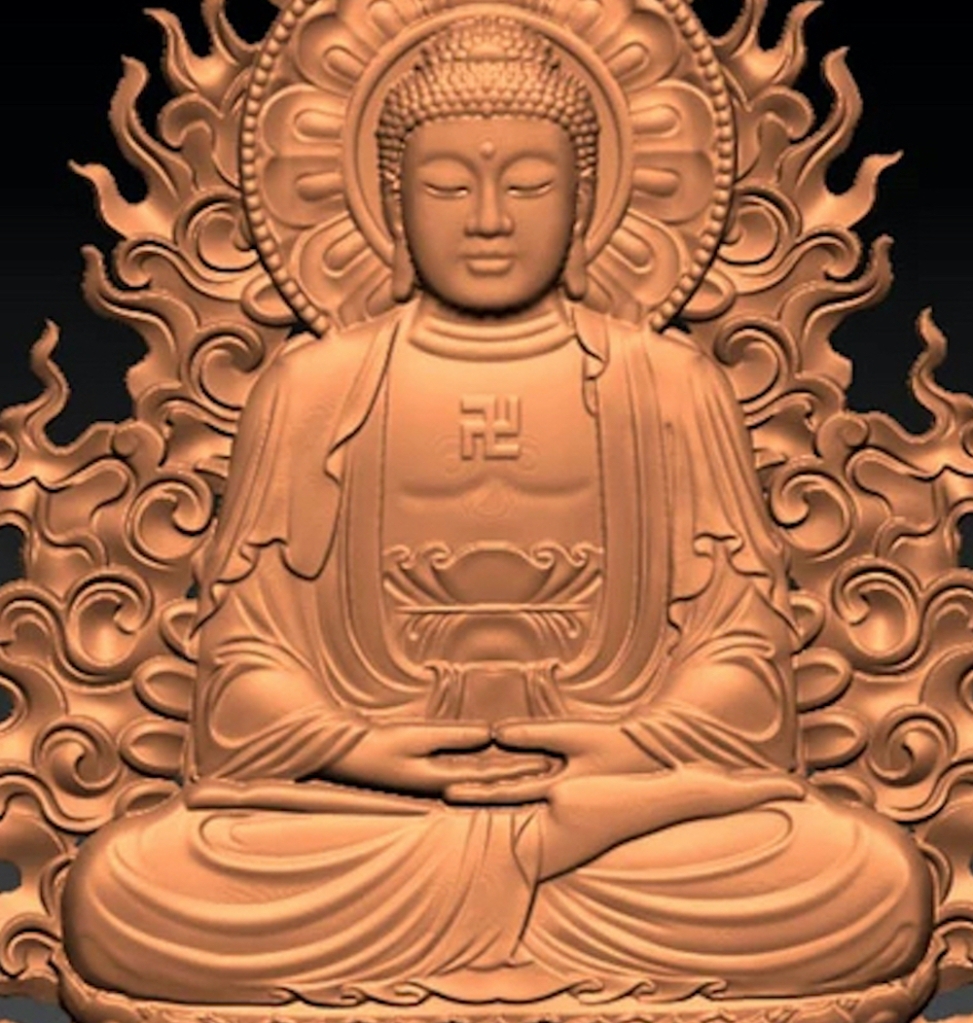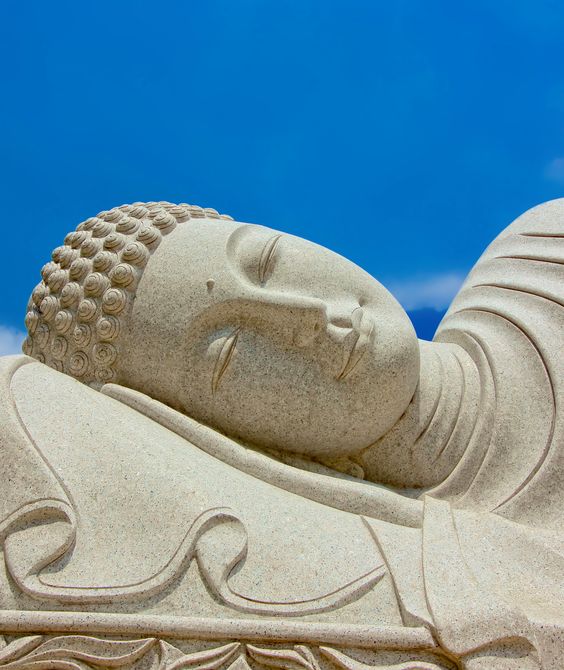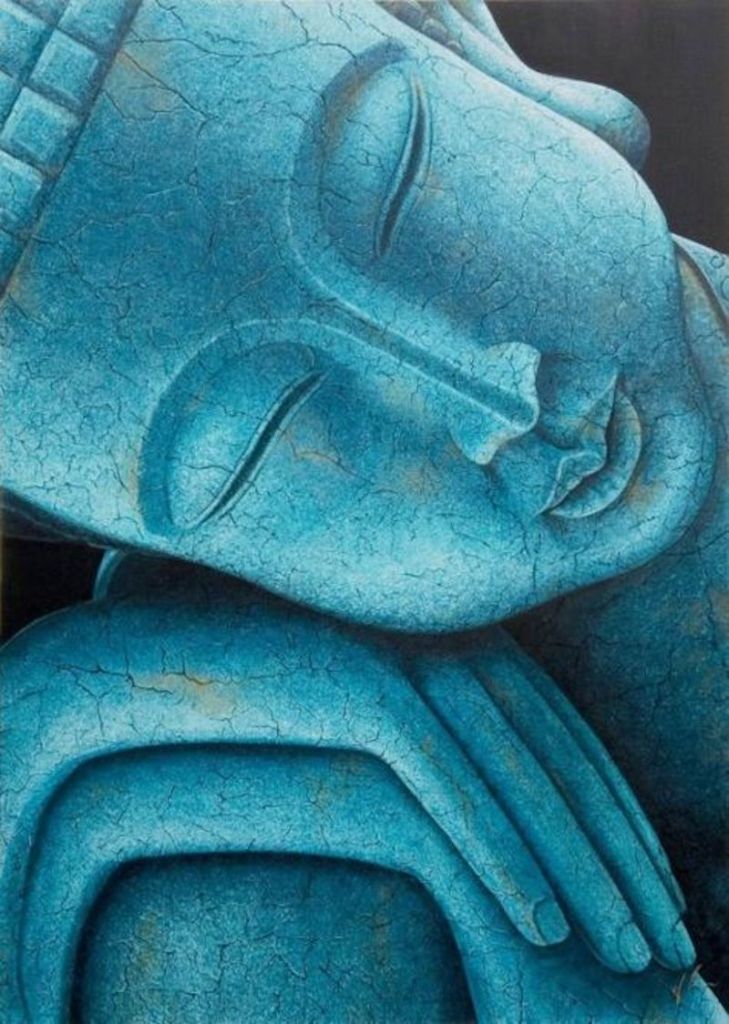
Ajahn Sumedho
[The second part of last week’s post titled ‘Consciousness’ taken from a chapter in ‘Intuitive Awareness’ by Ajahn Sumedho]
Buddha-Dhamma, when you look at it, is not a cultural teaching. It’s not about Indian culture or civilization. It’s about the natural laws we live with, the arising and ceasing of phenomena. Dhamma teachings are pointing to the way things are – things that aren’t bound by cultural limitations. We talk about anicca, dukkha, anattā. That’s not Indian philosophy or culture; these are things to be realized. You are not operating from some basic belief system that’s cultural. The Buddha’s emphasis is on waking up, on paying attention rather than on grasping some doctrinal position. This is why many of us can relate to it, because we’re not trying to become Indians or convert to some religious doctrine that came out of India.
The Buddha awakened to the way it is, to the natural law. So, when we are exploring consciousness, these teachings like the five khandhas are skilful or expedient means in order to explore and examine our experience. They are not, ‘You have got to believe in the five khandhas and believe that there is no self. You cannot believe in God any more. To be a Buddhist you have to believe that there is no God.’ There are Buddhists who do have this mentality. They want to make doctrinal positions about being Buddhist. To me that teaching is not based on a doctrine, but on this encouragement to awaken. You are starting from here and now, from awakened attention rather than from trying to prove that the Buddha actually lived. Somebody might say, ‘Maybe there was never any Buddha; maybe it was just a myth,’ but it doesn’t matter because we don’t need to prove that Gotama Buddha actually lived; that’s not the issue. We are not trying to prove historical facts, but to recognize that what we are actually experiencing now is like this.
When we allow ourselves just to rest in conscious awareness, this is a natural state; it’s not created. It’s not a refined conditioning that we are after, where we are moving from coarser conditions to increasingly more refined ones, where we experience a bliss and tranquillity that comes from refining conscious experience. That is very dependent. This world, this conscious realm that we are a part of, includes the coarse and the refined.
This is not a refined realm that we are experiencing. In terms of human or planetary life, this is not a devaloka or a brahmaloka, those divine or highest celestial realms which are more refined. This is a coarse realm where we run the gamut from that which is coarse to that which is refined. We have got to deal with the realities of a physical body, which is quite a coarse condition. In deva realms they do not have physical bodies, they have ethereal ones. We would all like to have ethereal bodies, made out of ether rather than all these slimy things that go on inside our bodies – bones, pus and blood, all of these yucky conditions that we have to live with. To defecate every day – devatās don’t have to do things like that. Sometimes we like to create the illusion that we are devatās. We don’t like these functions; we like privacy. We don’t want people to notice, because the physical conditions that we are living with are actually pretty coarse. But consciousness includes all that, all the gradations from the coarse to the most refined.
Another thing to notice is compulsive feelings of having to do something, having to get something that you don’t have, having to attain something or get rid of your defilements. When you’re trusting in ‘your real home’, then you can have perspective on this conditioning of the emotions. For example, we come from competitive goal-oriented societies, so we’re very much programmed to always feel that there is something that we have got to do. That we’re always lacking something and we have got to find out what it is, and we’ve got to get it. Or that we have got to get rid of our weaknesses, faults and bad habits. Notice that this attitude is just something that arises and ceases. It’s the competitive world, the world of a self.
We can always see ourselves in terms of what’s wrong with us as a person. As a person there are always so many flaws and inadequacies. There is no perfect personality that I have ever noticed. Personality is all over the place; some of it is all right and some of it is really wacky. There is no personality you can take refuge in. You are never going to make yourself into a perfect personality. So, when you are judging yourself on a personal level, there seem to be so many problems, inadequacies, flaws and weaknesses. Maybe you are comparing yourself to some ideal person, some unselfish and superlative personality. That which is aware of personality is not personal. You can be aware of the personality as a mental object. The conditions for personality arise and cease. Suddenly you can find yourself feeling very insecure or acting very childish because the conditions for that personality have arisen.

When my parents were alive, I went to stay with them for about three weeks, because they were really sick. I was abbot of Amaravati, a fifty-five-year-old Ajahn Sumedho going home and living in the same little house with my mother and father. It brought up all kinds of childish emotions, because the conditions were there for that. We were all born through our parents, and our memories and connections are from infancy onwards. A lot of the conditions that arise in families are conditions for feeling like a child again – even when you’re a fifty-five-year-old Buddhist monk and abbot of a monastery! [Note, at the time of publication Ajahn Sumedho is 89.] My mother and father would easily go back to seeing me as a child. Rationally they could see, ‘He’s a middle-aged man,’ but they would still sometimes act like I was their child. Then I would feel this rebelliousness and adolescent kind of resentment about being treated like a child. So don’t be surprised at some of the emotional states that arise. Throughout your life, as you get old, kamma ripens and then these conditions appear in consciousness. Don’t despair if you find yourself feeling very childish at fifty years old. Just be aware of that for what it is. It is what it is. The conditions for that particular emotion are present, so then it becomes conscious. Your refuge is in this awareness rather than in trying to make yourself into an ideal man or woman – mature, responsible, capable, successful, ‘normal’ and all the rest – these are the ideals.
Here at Amaravati, I am not looked at as a child. I’m the oldest person here! You may see me in terms of a father figure, because an old man like me brings out the sense of authority. I’m an authority figure, a patriarch, a father figure, a male figure – a grandfatherly figure to some of you. It’s interesting to see this state when the conditions are there. Rationally you can say, ‘He’s not my father,’ but emotionally you may feel like that, acting towards me like I’m a father. It’s an emotional habit. When the conditions for that kind of male authority figure are present, then this is what you are feeling, it’s like this. There is nothing wrong with it, just notice it’s the way it is. Trust your refuge in this awareness, not in some idea that you shouldn’t project fatherly images onto me, or that you shouldn’t feel disempowered by a male authority figure and things like this. If you feel disempowered by me, then simply recognize it as a condition that has arisen, rather than blaming me or blaming yourself, because then you are back into the world you are creating – your personal world – and believing in that as your reality.
I used to get really angry when women would get bossy. When any woman would show any kind of bossiness, I would feel rage. I wondered why even a tone of voice would make me so upset, why I could get so enraged over a bossy attitude. I could see it was like when I was a boy, trying to get my way against my mother. If that has not yet been fully resolved, if the conditions for that rage are present, then this is what will arise. It’s through “awareness of it that you resolve it. As you understand it and see it in terms of what it is, then you can resolve it or let it go, so that you are not just stuck with the same old reactions all the time.
Our refuge is in this awareness, rather than in trying to sustain refined experiences in consciousness as our refuge, because you can’t do that. Maybe you can learn to increase your experience of refinement through developing skilful means, but inevitably you have to allow the coarse to manifest, to be a part of your conscious experience. Resting in this conscious awareness is referred to as ‘coming home’ or ‘our real home.’ It’s a place to rest, a home. The idea of a home is a place where you belong. You are no longer a foreigner or an alien. You begin to recognize this through a sense of relief, of just being home at last, of not being a stranger, a wanderer out in the wilderness. Then the world of Ajahn Sumedho arises and it’s like I’m not at home anymore, because Ajahn Sumedho is an alien, a stranger. He never feels quite at home anywhere. Am I American now? Am I British or am I Thai? Where do I feel at home as Ajahn Sumedho? I don’t even know what nationality I am anymore, or where I feel most at home. I feel more at home here than in America because I’ve lived here for so long. In Thailand I feel at home because it’s a paradise for Buddhist monks and they treat you so well, but still you have to get visas and you’re always a phra farang (foreign monk). Here in England, no matter how many years I have lived here, to most people I am still an American. But when I go back to America, I don’t know what I am; people say: ‘You don’t look like an American anymore. You’ve got a funny accent; we don’t know where you are from!’ That’s the world that is created. When all that drops away, what’s left is our real home.

Source:
https://www.abhayagiri.org/media/books/Intuitive_Awareness_web-edition_1.2_2017.pdf

You must be logged in to post a comment.